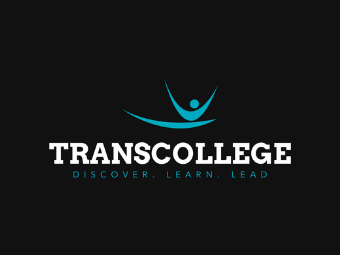© Transcollege 2025
Financial Accounting Programme
(SAQA ID: 20366)
Build Your Career with Financial Accounting
ABOUT THIS COURSE
ICB Financial Accounting is designed to give you both the knowledge and practical skills needed to succeed in the financial sector. You’ll build expertise in areas such as bookkeeping, financial accounting, income tax, financial management, reporting standards, corporate strategy, management accounting, and research — preparing you for a strong and versatile career in finance.
HOW YOU’LL PROGRESS
Gain practical, step-by-step training with 12 subjects that build your skills as you progress. Earn your first foundation qualification after just four subjects, with a certificate awarded for each step. The further you go, the stronger your expertise — and your career opportunities — become.
CAREER PATH
Completing this programme opens the door to a rewarding career in Financial Accounting, with opportunities to work as a Bookkeeper, Senior Bookkeeper, Accountant, or Financial Accountant.
IDEAL FOR
This programme is ideal for school leavers (with or without Matric), working adults looking to grow their financial expertise, entrepreneurs who want to manage their own business finances, junior bookkeeping staff, and anyone aspiring to build a career as a Financial Accountant.
DURATION
12 months
FORMAT
Face-to-Face
Programmes run full-time during the week and part-time on weekends.
CERTIFICATION
National Certificate: Bookkeeping
NQF L3 (SAQA ID: 58375)
Total credits: 120
ADMISSION
Grade 10 (Std 8) or equivalent. You
must be at least 16 years old.
MODULES
BOOKKEEPING TO TRIAL BALANCE (BKTB)
This module introduces students to the fundamentals of bookkeeping and accounting, covering key principles such as source documents, double-entry rules, subsidiary journals, the general ledger, inventory systems, banking, and debtor/creditor reconciliations. By developing these core skills, students will be well-prepared for roles such as Accounts Clerk, Debtors Clerk, or Creditors Clerk. The module also provides practical training in business basics, Value Added Tax, recording cash and credit transactions, maintaining debtor and creditor accounts, performing supplier and general ledger reconciliations, managing bank reconciliations, and drafting financial statements.
PAYROLL AND MONTHLY SARS RETURNS (PMSR)
This module equips students with the knowledge to handle the manual monthly bookkeeping function while introducing essential aspects of payroll, the Basic Conditions of Employment Act, and core business ethics. Students will gain practical skills to manage payroll from a bookkeeping perspective, including calculating PAYE, SDL, and UIF, and completing monthly and annual SARS payroll returns such as EMP201, IRP5, IT3a, IRP501, as well as the VAT201 return.
COMPUTERISED BOOKKEEPING (CMBK)
This module provides students with essential business computing and computerised accounting skills, preparing them to confidently manage the monthly bookkeeping cycle using accounting software, Microsoft Excel, Word, and PowerPoint. To succeed in this subject, students should already have basic computer proficiency and a foundational understanding of Pastel Accounting or an equivalent system.
BUSINESS LITERACY (BUSL)
This module builds students’ confidence in both spoken and written business communication while strengthening essential workplace numeracy skills. Students will learn to apply fractions, percentages, ratios, equations, and interest rates, as well as measure, analyse, and communicate workplace data effectively. Covering topics such as work readiness, business communication, and business numeracy, the programme equips students to apply these skills with confidence in professional environments.
DURATION
6 months
FORMAT
Face-to-Face
Programmes run full-time during the week and part-time on weekends.
CERTIFICATION
Further Education and Training Certificate: Bookkeeping
NQF L4 (SAQA ID: 58376)
Total cumulative credits: 130
ADMISSION
Successful completion of the
previous subjects (1-4).
MODULES
FINANCIAL STATEMENTS (FNST)
This module equips students with core financial accounting and reporting skills, from recording business transactions and managing depreciable assets to finalising and interpreting accounts. Students will gain practical experience in preparing financial statements for sole proprietorships and partnerships, conducting internal reports for corporations, and developing an understanding of IFRS for SMMEs, including the preparation of cash flow statements.
COST AND MANAGEMENT ACCOUNTING (CMGT)
This module introduces students to the principles of managerial accounting, with a focus on managing inventory and overhead costs in a manufacturing environment. Students will develop practical skills in job costing, budgeting, standard costing, contract accounting, and process costing, while also gaining a solid foundation in financial management principles.
DURATION
6 months
FORMAT
Face-to-Face
Programmes run full-time during the week and part-time on weekends.
CERTIFICATION
National Diploma: Technical Financial Accounting
NQF L5 (SAQA ID: 36213)
Total credits: 251
ADMISSION
Successful completion of the
previous subjects (1-6).
MODULES
INCOME TAX RETURNS (ITRT)
This module provides students with in-depth knowledge of income tax, covering the Income Tax Act, different types of taxes, applicable rates, rebates, and thresholds. Students will learn how to calculate income tax, identify gross income types and special inclusions, and manage fringe benefits, asset sales, dividends, and key-man insurance policies. The programme also explores allowable and prohibited deductions, including capital and building allowances, while addressing employee tax (SITE vs. PAYE), SDL, UIF, and SARS returns such as EMP201, EMP501, and IRP6. In addition, students will gain insight into tax for non-residents and business entities, as well as dividend tax, value extraction tax, trusts, turnover tax, capital gains tax, donations tax, estate duty, and the critical role of SARS and tax practitioners.
BUSINESS LAW AND ACCOUNTING CONTROL (BLAC)
This module introduces students to essential business principles, combining both economic and legal foundations. Students will explore micro- and macroeconomics, demand and supply dynamics, the role of key economic participants, and the impact of inflation, while also gaining an overview of the South African legal system, contract law, and core business legislation. The programme includes personal finance management, covering investment decisions, retirement planning, insurance, and debt management. In addition, students will develop an understanding of accounting systems and internal controls, auditing principles, revenue and payment cycles, payroll, asset management, and cash management. Further topics include inventory control, analytical review processes, auditing unusual fluctuations, and the fundamentals of liquidation and executor accounts.
DURATION
12 months
FORMAT
Face-to-Face
Programmes run full-time during the week and part-time on weekends.
CERTIFICATION
National Diploma: Financial Accounting
NQF L6 (SAQA ID: 20366)
Total credits: 280
ADMISSION
Successful completion of the previous subjects (1-8).
MODULES
CORPORATE STRATEGY (CRPS)
This module equips students with a solid understanding of strategic management concepts and models, focusing on how they can be applied to improve business performance. Students will gain the skills to diagnose, analyse, and address organisational challenges by formulating strategic direction, setting corporate goals and objectives, and identifying and implementing effective strategies. The programme also highlights the importance of continuous improvement through strategic control and examines the role of strategic management in both corporate and non-profit organisations.
MANAGEMENT ACCOUNTING AND CONTROL SYSTEMS (MACS)
This module provides students with essential knowledge in cost and management accounting, management control systems, and business information systems, along with the techniques organisations use to make informed decisions. Key topics include activity-based costing, cost classification, estimation and behaviour, cost-volume-profit analysis, linear programming, standard costing, relevant costs, expected value theory, decision trees, pricing policy, transfer pricing, budgeting, and divisional performance evaluation.
FINANCIAL REPORTING AND REGULATORY FRAMEWORKS (FRRF)
This module introduces students to the key principles of financial statement presentation and reporting. Core topics include property, plant, and equipment, investment property, asset impairment, intangible assets, and inventories, as well as provisions, contingent liabilities and assets, leases, financial instruments, and post-reporting events. Students will also explore revenue recognition, employee benefits, foreign exchange rate effects, earnings per share, and income tax accounting, while developing the ability to manage accounting policies, changes in estimates, and the correction of errors. Further study areas include statements of cash flows, consolidated financial statements, and the financial reporting requirements set out in the Companies Act.
RESEARCH THEORY AND PRACTICE (RTAP)
This dissertation research equips students with the essential skills to conduct accounting research effectively. Students will learn how to identify and define a research problem, set clear objectives, and apply appropriate theories, concepts, and models to build a strong theoretical framework. The course develops critical abilities in analysing and interpreting findings, drawing evidence-based conclusions, and making practical recommendations. All students are required to complete the Research Theory and Practice (RTAP) subject, submitting their work in the form of a mini-dissertation that meets the required standards of presentation, referencing, and academic integrity. As with other modules, students must complete the Portfolio of Evidence (PoE) process, including all checks and acknowledgements, and follow the instructions provided in the PoE booklet. Please note that research topics may change periodically and will be communicated through the PoE.

